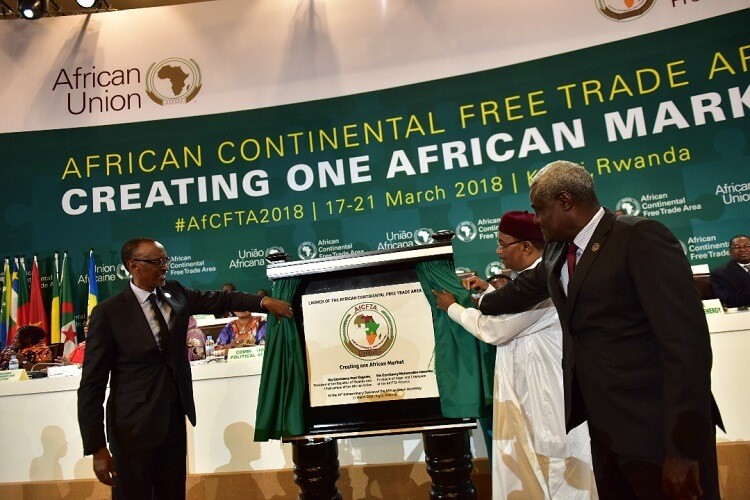The Nigerian Office for Trade Negotiations has said that exporters under the African Continental Free Trade Area must obtain permits, licences, certificates and other relevant documentation from appropriate government agencies.
NOTN via its Twitter handle said that regulatory approvals must be obtained to ensure that products qualified for export under the AfCTA.
Advertisement
It said the approvals must be obtained from the Nigerian Export Promotion Council, Standards Organization of Nigeria, National Agency for Food, Drug Administration and Control among others.
It states, “Exporters or agent must secure all necessary licenses, permits, certificate and necessary documents from relevant agencies like NEPC, SON, NAFDAC, NAQS and others.
” Ensure that the products qualifies for export under AfCFTA.
NOTN stated via its Twitter handle that exporters and agents needed to create a bill of entry, attach the permits from government agencies and make reservation with shipping or airline firms.
Advertisement
“The Nigerian Customs Service is the issuer of the certificate, however NACCIMA must vet the application, ” it added.
Other accompanying documents required for shipments according to NOTN includes; bill of lading, certificate of analysis, certificate of origin, packing list, certificate of origin and certificate of analysis are required for shipment to be executed.
It states, “Finally, compulsory AfCTA trading documents are; supplier/producer’s declaration form, AfCTA certificate of origin, and origin of declaration form.”
The AfCFTA will bring together all 55 member states of the African Union covering a market of more than 1.2 billion people, including a growing middle class, and a combined gross domestic product of more than $3.4trn.
In terms of numbers of participating countries, the AfCFTA will be the world’s largest free trade area since the formation of the World Trade Organization.
Advertisement
Estimates from the Economic Commission for Africa suggest that the AfCFTA has the potential both to boost intra-African trade by 52.3 percent by eliminating import duties, and to double this trade if non-tariff barriers are also reduced.
The main objectives of the AfCFTA are to create a single continental market for goods and services, with free movement of business persons and investments, and thus pave the way for accelerating the establishment of the Customs Union.
It will also expand intra-African trade through better harmonization and coordination of trade liberalization and facilitation and instruments across the RECs and across Africa in general.



